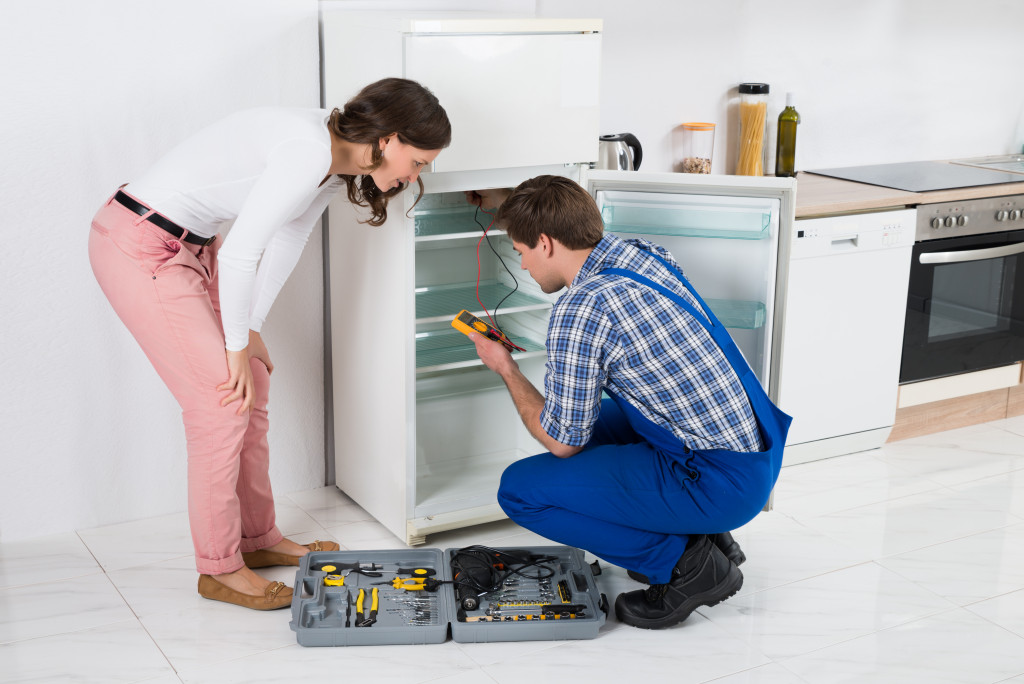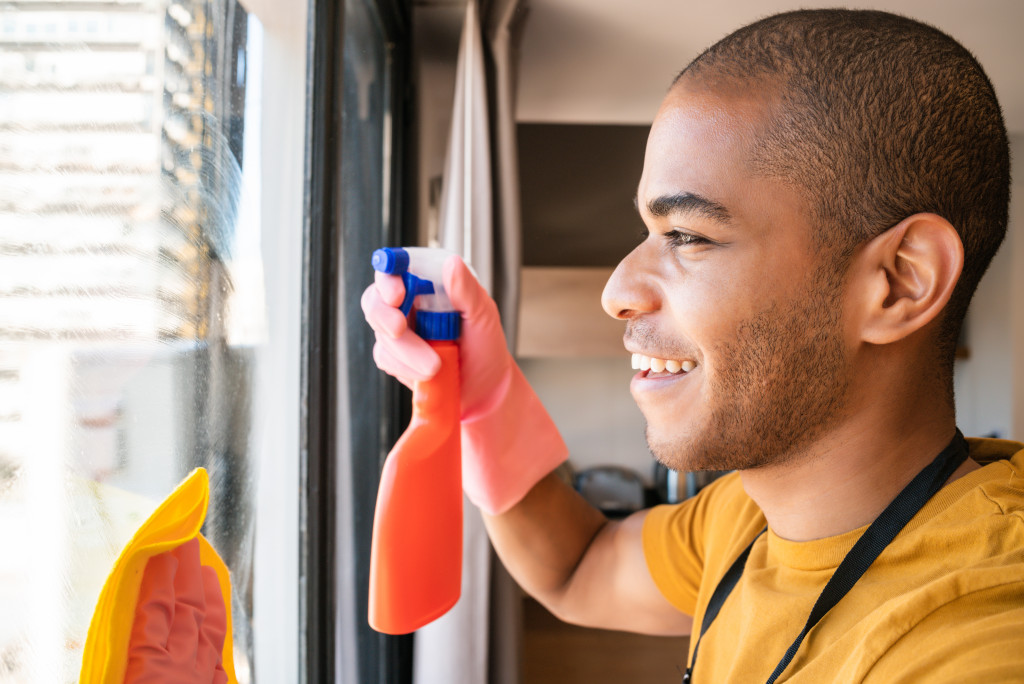Homeownership comes with a lot of responsibility. In addition to making mortgage payments and keeping up with repairs, you also have to maintain your home regularly. Unfortunately, household maintenance is often neglected or removed until it’s absolutely necessary. But did you know that preventive maintenance can actually save you time and money in the long run?
A well-maintained home is a happy home—and we’re here to help you make sure your home is in tip-top shape. Here is an ultimate household maintenance checklist with six essential tips to keep your home running smoothly. So whether you’re a first-time homeowner or a seasoned pro, read on for everything you need to know about maintaining your beloved abode.
1. Inspect Your Roof and Gutters Regularly
Your roof is one of the most essential parts of your home, so it’s important to inspect it regularly for any signs of damage. Look for missing or damaged shingles, leaks, or any other type of damage. If you spot any problems, don’t hesitate to call a professional for help.
In addition to inspecting your roof, it’s also important to clean your gutters regularly. Clogged gutters can cause water damage to your roof and foundation, so be sure to remove any debris that has accumulated over time. You should also check for leaks and cracks—these can usually be repaired with some simple caulk or sealant.
2. Check Your Windows and Doors for Drafts
Another way to prevent water damage is by checking your windows and doors for drafts. If you feel a draft coming from any of your doors or windows, it means that air is leaking out—which means water can leak in during bad weather. To fix this problem, simply add some weatherstripping around the door or window frame.
This will create an airtight seal and prevent further drafts from coming in. You can also check the caulking around your windows and doors to ensure there are no cracks or gaps. Just like with the gutters, a small amount of caulk can go a long way in preventing water damage.
3. Test Your Smoke Detectors Monthly
One simple way to keep your family safe is by testing your smoke detectors monthly and changing the batteries yearly—this will ensure they’re always working properly in case of an emergency. It’s also a good idea to vacuum the detectors themselves every few months to remove any dust or debris that might have accumulated over time.
When changing the batteries, consider upgrading to a 10-year battery. This will save you the trouble of having to replace them every year—plus, it’s one less thing for you to remember on your yearly maintenance checklist.

4. Clean Out Your Dryer Vent Annually
Did you know that lint buildup in your dryer vent is one of the leading causes of house fires? To prevent this from happening, clean your dryer vent at least once per year—more often if possible. You can do this yourself with a vacuum cleaner or hire a professional to do it for you—either way, it’s an important task that should never be neglected!
When cleaning out the vent, be sure to also check the area around the dryer for any lint buildup. This can easily catch fire, so be sure to clean it up and remove any flammable materials from the area.
5. Replace Your HVAC Filters Regularly
Your HVAC system is responsible for keeping your home comfortable, so it’s crucial to maintain it regularly. One simple way to do this is by replacing the filters in your HVAC system every 1-3 months, depending on your filter type. Clean filters not only keep your air clean but also improve the efficiency of your HVAC system and can lower your energy bills.
You should also get your boiler inspected and serviced once a year and consider getting a boiler installation if your boiler is old or constantly in need of repairs. A new boiler can save you money in the long run and ensure that your home stays warm and comfortable all winter long.
6. Schedule Regular Plumbing Inspections
Lastly, be sure to schedule regular plumbing inspections to prevent any major issues from arising. This includes checking for leaks and inspecting the pipes for corrosion. In addition, have a plumber clean out your drains every 1-2 years to prevent clogs and backups.
It would be best if you also considered installing water sensors in your home—these can alert you to leaks before they cause significant damage. Keeping on top of plumbing maintenance can save you from expensive repairs and water damage in the long run.
When it comes to household maintenance, it’s always better to be proactive instead of reactive. Take the time to add these tasks to your yearly checklist and stay on top of any potential issues before they become major problems. Your home will thank you in the long run!
